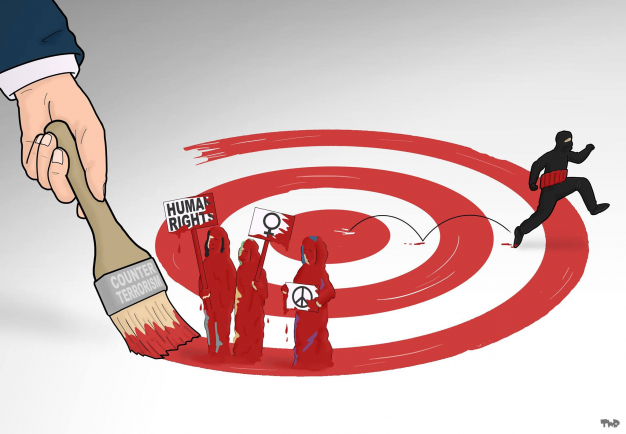 |
|
A woman distributes information about gender sensitivity and gender equality to a man in Beirut, Lebanon, 2012. (ABAAD) |
"In Lebanon, many of the religious leaders seem to have a very negative stigma as being opposed to gender equality or gender issues, things that they do not see themselves as opposed to,” said Anthony Keedi, a program manager at ABAAD, a resource center for gender equality in Lebanon.
ABAAD produced a video last year that features top Muslim and Christian clerics from Lebanon denouncing gender violence and citing religious texts to support these views. Mr. Keedi said the clerics “don't want to be seen as haters of women or people who are against gender equality.”
“Sadly, in our [Lebanese] culture, there's very little awareness of what gender entails, and a lot of the ways that gender has been explained has been misconstrued by a lot of men in our country and our culture,” he said. “They don't even understand how positive feminism is for women, for men, and for society as a whole.”
Mr. Keedi noted that working with men on gender and equality "will inherently make their lives better, as it will the lives of women in our country, and we're really focusing on that."
He said his organization has a psychological center called the Men's Center “where we see men—anonymous, confidential, and free of cost—and we work on issues of masculinity.” His organization is also raising awareness of gender with young people. “Rather than having these discussions of what gender is and moving from there with men aged forty, we'll begin those discussions at age eight through eleven or twelve years old.”
“We will never be a truly developed society that is fundamentally peaceful without the integration of women into politics, into economy, into decision-making in everyday life—without the integration of men into domestic life and being child caretakers, and being loving partners," he said, adding that this approach includes, "letting each individual live according to what they see fit, [and] especially not infringing upon other people."
He said this holistic approach might be more difficult, but moving forward is "just not going to happen unless we incorporate these [gender] issues.”
Read the full interview on the IPI Global Observatory website

 Following WPP's CSW panel discussion "Involving Religious Leaders in Women's Rights Work: Innovative Practices and Challenges from the Field", Andrea Ó Súilleabháin of the International Peace Institute (IPI) Global Observatory interviewed Anthony Keedi, one of the panelists and Program Coordinator at ABAAD - Resource Center for Gender Equality (Lebanon), about involving religious leaders and men in gender equality work. He explains the positive effects of feminism on society as a whole, gender issues within Lebanon and how ABAAD involves religious leaders for gender equality.
Following WPP's CSW panel discussion "Involving Religious Leaders in Women's Rights Work: Innovative Practices and Challenges from the Field", Andrea Ó Súilleabháin of the International Peace Institute (IPI) Global Observatory interviewed Anthony Keedi, one of the panelists and Program Coordinator at ABAAD - Resource Center for Gender Equality (Lebanon), about involving religious leaders and men in gender equality work. He explains the positive effects of feminism on society as a whole, gender issues within Lebanon and how ABAAD involves religious leaders for gender equality.




